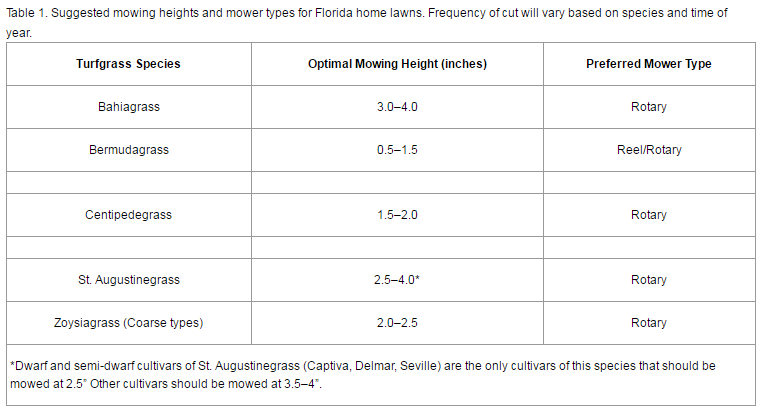Theresa Badurek, UF/IFAS Urban Horticulture Agent
Having a healthy Florida lawn does not have to mean wasting water or using lots of chemicals that can pollute There are a few easy tips to learn that will help your lawn succeed while protecting our beautiful environment. Summer is a challenging time for lawns and they are very stressed after the extreme drought we just came through. Summer heat, an increase in pests, and heavy rains are all challenges this time of the year. You can learn to weather these challenges better than the pros with a little knowledge under your belt.
Bugs
Lawn and garden pests thrive in hot weather. The most important thing you can do about this is to scout your lawn for bugs. Walk around and observe the lawn as a whole and inspect areas where anything looks different, discolored, damaged, or thin. Get down in the grass and note anything different than the healthy lawn areas. Some common lawn pests include chinch bugs, mole crickets, webworms, grubs, and fire ants. For more info on these and other lawn pests: http://edis.ifas.ufl.edu/topic_lawn_insect_pests. If you find an infestation treat only the affected area, do not apply pesticides to an entire lawn- it’s a waste of your time and money and kills beneficial insects that help control the bad bugs.
Heat
There is no defense against the blazing Florida sunshine. Luckily, turf grasses thrive with tons of sun, so this can be advantageous as long as the lawn gets the water it needs.
Water
Turf grasses in Florida need ½”-3/4” of water per week. More water may do more harm than good. Most of the summer here is our rainy season and we usually far exceed that. The best way to monitor this is with a rain gauge. Keep your irrigation clock set to “OFF” and only turn it on if rain does not supply the required water. Over-watering contributes to bugs and diseases while reducing drought-resistance. Be smart, don’t over-water. You’ll save money on water, electricity, and chemicals that you might need to fight pests and diseases. Timing is important too: it’s best to water in the morning (around 4-8am) so it will dry quickly and reduce disease.
Disease
Heavy rains and over-watering cause fungal diseases. Often they will appear as yellow or brown patches in the lawn that spread and can kill off areas of turf. This may be more prevalent in shady areas where grass blades stay wet longer- the perfect conditions for fungal disease. This time of the year we often see gray leaf spot disease: http://edis.ifas.ufl.edu/pdffiles/PP/PP12600.pdf. You can’t control the rain but you can control your irrigation, do not over-water.
Weeds
Pull them or dig them up, don’t use chemicals. You will get free exercise and your lawn will thank you. If you do this regularly as you are scouting for pests you will catch weed infestations early and keep the work to a minimum. Areas that are more weeds than turf may need to be replanted with new turf or other plants you prefer.
Mowing
This one has three simple parts:
- Keep mower blades sharp.
- Never mow more then 1/3 of the leaf blade.
- Mow at the right height for your grass (see table):
Fertilizing
During summer many areas have fertilizer ordinances that don’t allow fertilization of grass and other landscape plants with certain nutrients. We have such an ordinance here in Pinellas so nitrogen and phosphorus cannot be applied in summer. Fear not, though. Leave clippings on the lawn when you mow and that adds nitrogen back into your soil- for free. If you water with reclaimed water you are adding nitrogen to the soil too. You don’t want to add too much nitrogen anyway, it encourages lots of lush new growth which is very attractive to pests. Don’t encourage those bugs!
Bottom Line
The more you do, the more you will have to do. Using chemicals typically creates the need to use more chemicals. Don’t get caught in that loop. Think and act conservatively towards your lawn and it will thrive. And you will have more time for the beach, the pool, golfing, whatever you like!
The post Environmentally-Friendly Lawn Care: Summer Edition appeared first on UF/IFAS Extension Pinellas County.














